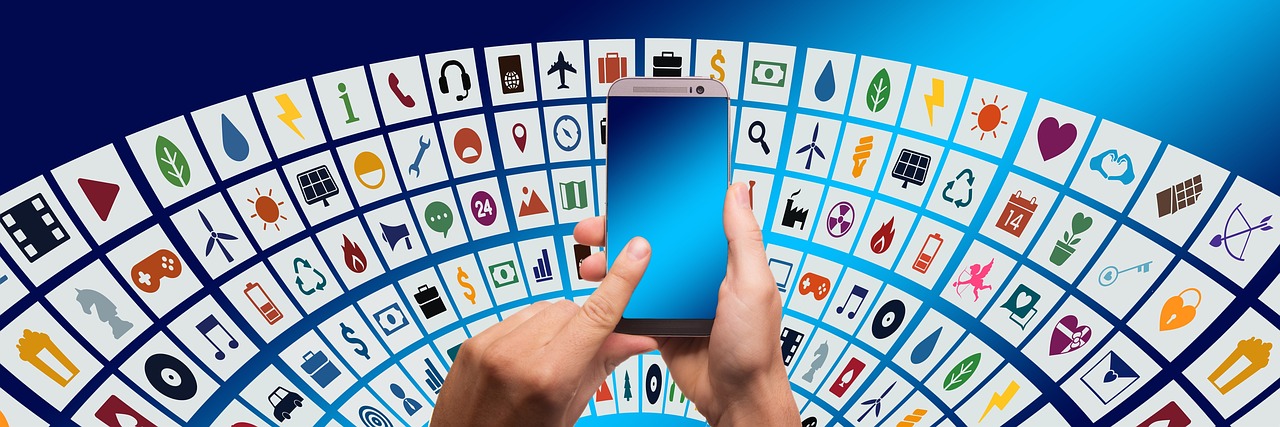How to Use Tech to Improve Your Mental Health
Technology has revolutionized the way we approach mental health, offering a plethora of tools and resources to support our well-being. By harnessing the power of tech, individuals can proactively enhance their mental wellness and cultivate a healthier mindset. From meditation apps to fitness trackers, the digital landscape is brimming with opportunities to improve mental health through innovative solutions.
One of the most popular ways to leverage technology for mental well-being is through meditation apps. These applications provide guided meditations, breathing exercises, and mindfulness practices to promote relaxation and reduce stress. By incorporating meditation into your daily routine with the help of these apps, you can cultivate a sense of inner peace and mental clarity.
Tracking mood and progress is another essential aspect of utilizing technology for mental health improvement. Digital tools such as mood tracking apps and journals allow individuals to monitor their emotional state, identify triggers, and track progress over time. By gaining insights into patterns and trends, individuals can make informed decisions to support their mental well-being.
Online therapy platforms and support groups offer a convenient and accessible way to seek mental health support. Virtual counseling sessions and online communities provide a safe space for individuals to share their experiences, receive guidance, and connect with others facing similar challenges. The power of virtual connections can offer a sense of belonging and validation, fostering a supportive environment for mental health recovery.
Fitness and wellness apps play a crucial role in promoting mental health through physical activity and healthy habits. These apps offer personalized workout plans, nutrition tracking, and motivation to help individuals stay active and prioritize their well-being. By incorporating fitness into your routine with the help of technology, you can boost your mood, reduce anxiety, and improve overall mental wellness.
Embarking on a digital detox journey is essential for maintaining a healthy relationship with technology and safeguarding your mental health. By implementing strategies to reduce screen time, set boundaries with devices, and prioritize real-life interactions, individuals can create a more balanced and mindful approach to technology use. Taking breaks from digital distractions can help recharge your mental batteries and foster a sense of presence and mindfulness.
Sleep tracking devices and apps offer valuable insights into your sleep patterns and quality, allowing you to optimize your bedtime routine for better rest. By monitoring your sleep habits and making adjustments based on data provided by these tools, you can enhance your sleep hygiene and overall mental well-being. Quality sleep is essential for cognitive function, mood regulation, and overall health, making it a cornerstone of mental wellness.
Engaging in mindfulness practices and breathing exercises supported by technology can help manage anxiety, improve focus, and promote relaxation. Guided meditation apps, breathing exercise tools, and relaxation techniques offer a structured approach to cultivating mindfulness and reducing stress. By integrating these practices into your daily routine, you can develop resilience, emotional regulation, and a greater sense of inner calm.
Journaling and reflection apps provide a digital space for self-expression, gratitude practices, and emotional processing. These platforms offer prompts, templates, and features to facilitate journaling, goal setting, and reflection on personal growth. By journaling regularly and engaging in introspective practices through digital tools, individuals can gain clarity, perspective, and emotional release, supporting their mental health journey.
Social media consumption can have a significant impact on mental well-being, with excessive use contributing to feelings of inadequacy, comparison, and anxiety. Setting boundaries, curating your online experience, and prioritizing real-life connections are essential strategies for mitigating the negative effects of social media. By fostering meaningful interactions, limiting screen time, and engaging mindfully with social platforms, individuals can protect their mental health and cultivate a positive digital environment.

Utilizing Meditation Apps
Utilizing meditation apps can be a transformative experience for your mental well-being. These apps offer a convenient way to incorporate mindfulness practices into your daily routine, promoting relaxation and reducing stress levels. By engaging with meditation apps, you can access a variety of guided meditation sessions tailored to different needs, whether it's improving focus, managing anxiety, or enhancing overall mental clarity.
One of the key benefits of meditation apps is their accessibility, allowing you to practice mindfulness anytime, anywhere. With features like customizable session lengths and soothing background sounds, these apps make it easy to find moments of calm amidst a busy day. Moreover, many meditation apps offer progress tracking and reminders to help you stay consistent with your practice, fostering a sense of accomplishment and motivation.
Popular meditation apps like Headspace, Calm, and Insight Timer provide a range of meditation techniques, from breathing exercises to body scans, catering to beginners and experienced practitioners alike. These apps often include themed meditation programs focused on specific goals, such as improving sleep quality, boosting self-confidence, or cultivating gratitude.
Integrating meditation apps into your daily routine can lead to profound changes in your mental health and well-being. By dedicating a few minutes each day to mindfulness practice, you can cultivate a sense of inner peace, emotional resilience, and heightened self-awareness. Whether you're seeking stress relief, emotional balance, or mental clarity, meditation apps offer a valuable tool for nurturing a positive mindset and enhancing your overall quality of life.

Tracking Mood and Progress
Tracking your mood and mental health progress is essential for gaining valuable insights and identifying patterns that can help you better understand your emotional well-being. By utilizing digital tools such as mood tracking apps and journals, you can easily monitor your feelings and track changes over time. These tools not only provide a convenient way to record your emotions but also offer a structured approach to reflecting on your mental state.
One effective way to track your mood is by using mood tracking apps that allow you to log your emotions, activities, and thoughts throughout the day. These apps often use visual representations such as graphs or charts to help you visualize your mood patterns and fluctuations. By consistently inputting your mood data, you can spot trends and triggers that influence your mental health, enabling you to make informed decisions about managing your emotional well-being.
In addition to mood tracking apps, digital journals can serve as a powerful tool for monitoring your mental health progress. Journaling allows you to express your thoughts and feelings in a private and reflective space, helping you process emotions and gain clarity on your mental state. By regularly writing in a digital journal, you can track your emotional ups and downs, document significant events, and track your progress towards achieving mental wellness goals.

Online Therapy and Support Groups
Online therapy and support groups have revolutionized the way individuals can access mental health resources and connect with professionals and peers alike. Through virtual platforms and digital communication tools, individuals can now seek therapy sessions and join support groups from the comfort of their own homes. This convenience has broken down barriers to accessing mental health services, making it easier for people to prioritize their well-being.
One of the key advantages of online therapy is the flexibility it offers. With virtual counseling sessions, individuals can schedule appointments that fit into their daily routines without the need to travel to a physical location. This flexibility is particularly beneficial for those with busy schedules or mobility limitations, ensuring that mental health support is accessible to a wider range of individuals.
Moreover, online therapy and support groups provide a sense of anonymity and privacy that can be comforting for individuals who may feel hesitant about seeking help in traditional settings. Through secure online platforms, individuals can engage in therapy sessions or group discussions without the fear of judgment or stigma, fostering a safe space for open communication and emotional expression.
Additionally, online therapy platforms often offer a variety of communication options, including video calls, messaging, and chat features, allowing individuals to choose the format that best suits their comfort level and communication style. This versatility ensures that individuals can engage with therapy and support groups in a way that feels most natural to them, promoting a more personalized and effective mental health experience.
Furthermore, the sense of community and connection fostered by online support groups can be incredibly empowering. By sharing experiences, insights, and resources with like-minded individuals, participants can feel understood, supported, and less alone in their mental health journey. The camaraderie and encouragement found in online support groups can provide a sense of belonging and validation that is crucial for emotional well-being.
In conclusion, online therapy and support groups offer a modern and accessible approach to mental health care, providing individuals with the resources, support, and community they need to prioritize their mental well-being. By leveraging technology to connect with professionals and peers, individuals can take proactive steps towards improving their mental health and leading fulfilling lives.

Fitness and Wellness Apps
Fitness and wellness apps have revolutionized the way we approach physical health and mental well-being. These apps offer a plethora of features and benefits that can significantly impact our overall quality of life. By incorporating fitness and wellness apps into our daily routine, we can actively improve our mental health through promoting physical activity, fostering healthy habits, and enhancing our overall well-being.
One of the key advantages of fitness and wellness apps is their ability to provide personalized plans tailored to individual needs and goals. Whether you are looking to lose weight, build muscle, improve flexibility, or simply stay active, these apps offer a variety of workout routines and programs designed to meet your specific requirements. By following these customized plans, you can ensure that your physical activity aligns with your mental health objectives, leading to a more holistic approach to well-being.
Moreover, fitness and wellness apps serve as a source of motivation and encouragement, helping users stay on track with their fitness goals. Through features such as progress tracking, goal setting, and reminders, these apps keep individuals accountable and motivated to maintain a consistent exercise regimen. By establishing a routine and sticking to it, users can experience the mental benefits of regular physical activity, such as improved mood, reduced stress levels, and enhanced cognitive function.
Additionally, many fitness and wellness apps offer guidance on nutrition, hydration, and recovery, complementing the physical aspect of health with essential wellness practices. By providing information on healthy eating habits, proper hydration, and recovery strategies, these apps support a well-rounded approach to overall well-being. When our bodies are nourished and properly cared for, our mental health can also benefit, leading to a more balanced and fulfilling lifestyle.
Ultimately, the integration of fitness and wellness apps into our daily lives can have a profound impact on our mental health by promoting physical activity, encouraging healthy habits, and fostering a holistic approach to well-being. By leveraging the tools and resources offered by these apps, individuals can take proactive steps towards improving their mental wellness and achieving a greater sense of balance and vitality.

Digital Detox Techniques
Are you feeling overwhelmed by the constant digital bombardment in your life? It might be time to consider implementing some digital detox techniques to restore balance and improve your mental well-being. Just like a cluttered room can create chaos in your mind, excessive screen time and technology use can clutter your mental space.
One effective technique is to set designated tech-free zones or times in your daily routine. This could be during meals, before bed, or in specific rooms of your home. By creating boundaries with technology, you can reclaim moments of peace and focus without distractions.
Another approach is to engage in activities that don't involve screens. Whether it's reading a physical book, going for a walk in nature, or practicing a hobby, finding offline pursuits can help break the cycle of digital dependence and provide a much-needed mental break.
Consider conducting a digital audit to assess your screen time habits and identify areas where you can cut back. Are you mindlessly scrolling through social media for hours on end? Or constantly checking emails even during your downtime? Recognizing these patterns is the first step towards making meaningful changes.
Practice mindfulness during your digital detox by being fully present in the moment. Instead of multitasking with multiple tabs open and notifications pinging, focus on one task at a time. This not only reduces mental clutter but also enhances your productivity and overall well-being.

Sleep Tracking and Improvement
When it comes to improving your mental health, one often overlooked aspect is the quality of your sleep. Sleep plays a crucial role in our overall well-being, affecting our mood, cognitive function, and emotional stability. By utilizing technology to track and enhance your sleep patterns, you can make significant strides in improving your mental wellness.
One of the key ways to leverage tech for better sleep is through the use of sleep tracking devices and apps. These tools monitor your sleep duration, quality, and patterns, providing valuable insights into your nighttime habits. By analyzing this data, you can identify areas for improvement and take proactive steps to enhance your sleep hygiene.
Establishing a consistent bedtime routine is essential for promoting better sleep. Technology can assist in creating a relaxing pre-sleep ritual by setting reminders for winding down, dimming lights, and reducing screen time. By incorporating these digital cues into your evening routine, you can signal to your body that it's time to rest, leading to improved sleep quality.
Moreover, sleep improvement apps offer a variety of features to support healthy sleep habits. From soothing sounds and guided meditations to sleep tracking tools and personalized recommendations, these apps cater to individual needs and preferences. By exploring different app functionalities, you can find the right tools to optimize your sleep environment and promote restful nights.
In addition to tracking your sleep patterns, it's crucial to address any underlying issues that may be affecting your sleep quality. Stress, anxiety, and poor mental health can all contribute to sleep disturbances. Online resources, such as virtual therapy sessions and relaxation techniques, can help you manage these challenges and improve your overall well-being.
By combining technology-driven sleep tracking with holistic approaches to mental health, you can create a comprehensive strategy for enhancing your sleep and overall mental wellness. Remember, quality sleep is not just about the hours you spend in bed but the restorative nature of your rest. Embracing tech tools to monitor and improve your sleep can lead to a more rejuvenated mind and a healthier outlook on life.

Mindfulness and Breathing Exercises
Mindfulness and breathing exercises are powerful tools that can significantly impact your mental well-being. By incorporating technology into these practices, you can enhance their effectiveness and accessibility. Imagine having a virtual guide to lead you through calming breathing exercises, helping you find moments of peace amidst the chaos of daily life. These exercises, supported by technology, can aid in managing anxiety, reducing stress levels, and improving your overall focus and clarity.
Picture a scenario where you can simply open an app on your phone and engage in a guided mindfulness session, allowing yourself to be fully present in the moment and cultivate a sense of awareness and gratitude. These digital platforms offer a variety of techniques, from body scans to focused breathing exercises, tailored to meet your specific needs and preferences. With just a few taps on your screen, you can embark on a journey towards inner peace and emotional balance.
Moreover, technology provides the convenience of tracking your progress and consistency in practicing mindfulness and breathing exercises. You can set reminders, monitor your sessions, and reflect on your experiences using digital journals or tracking features. This data not only helps you stay accountable but also allows you to observe trends in your mental well-being over time, empowering you to make informed decisions about your self-care routine.
Imagine a virtual sanctuary where you can retreat whenever you need a moment of calm and reflection. By integrating mindfulness and breathing exercises with technology, you can create a harmonious balance between the digital world and your inner peace, fostering a sense of well-being and tranquility in your daily life.

Journaling and Reflection Apps
Journaling and reflection apps offer a digital sanctuary for individuals seeking to express their thoughts, emotions, and experiences in a private and introspective manner. These innovative tools serve as companions in the journey of self-discovery and emotional exploration, providing a space for personal growth and reflection.
By utilizing journaling apps, users can effortlessly capture their daily reflections, gratitude moments, and challenges, fostering a sense of mindfulness and self-awareness. These platforms often feature prompts and templates to inspire creativity and encourage deeper introspection, guiding individuals in understanding their emotions and behaviors.
Reflection apps, on the other hand, facilitate a structured approach to self-assessment and goal setting, allowing users to track their progress, achievements, and setbacks over time. Through interactive features and visual representations, these apps empower individuals to identify patterns, set intentions, and cultivate a sense of accountability in their personal development journey.
Furthermore, journaling and reflection apps offer a safe space for processing complex emotions, navigating life transitions, and celebrating moments of joy and resilience. With customizable settings and security features, users can trust that their innermost thoughts and reflections are protected, creating a sense of trust and comfort in their digital journaling experience.

Limiting Social Media Consumption
Social media has become an integral part of our daily lives, offering a platform for connection, information sharing, and entertainment. However, excessive use of social media can have detrimental effects on our mental health, leading to feelings of inadequacy, comparison, and anxiety. To limit the negative impact of social media consumption, it is essential to establish boundaries and cultivate a healthy relationship with these digital platforms.
One effective strategy for reducing social media consumption is to set specific time limits for usage. By allocating designated periods for scrolling through social feeds and engaging with online content, you can prevent mindless browsing and prioritize activities that promote well-being. Additionally, consider implementing technology tools, such as app timers and website blockers, to regulate your access to social media platforms.
Another approach to limiting social media consumption is to curate your online experience by unfollowing accounts that trigger negative emotions or promote unrealistic standards. Focus on following accounts that inspire and uplift you, fostering a positive digital environment that aligns with your values and interests. By decluttering your social media feed, you can create a more mindful and intentional online presence.
Furthermore, prioritizing real-life connections and activities over virtual interactions can help reduce the reliance on social media for social validation and entertainment. Engage in face-to-face conversations, hobbies, and outdoor pursuits that nurture genuine relationships and provide meaningful experiences. By balancing online interactions with offline engagements, you can cultivate a sense of fulfillment and connection beyond the digital realm.
Frequently Asked Questions
- Can meditation apps really help with reducing stress?
Yes, meditation apps are designed to promote mindfulness and relaxation, which can effectively reduce stress levels and improve mental well-being. By incorporating meditation into your daily routine through these apps, you can experience a sense of calm and focus.
- How can mood tracking apps benefit my mental health?
Mood tracking apps allow you to monitor your emotional state and identify patterns in your mood fluctuations. By tracking your mood and progress over time, you can gain valuable insights into your mental health and make informed decisions to support your well-being.
- Are online therapy platforms as effective as in-person therapy?
Online therapy platforms have been shown to be highly effective in providing mental health support and counseling services. They offer convenience, accessibility, and the opportunity to connect with licensed professionals from the comfort of your own space, making them a valuable resource for many individuals.
- How can fitness and wellness apps contribute to my mental health?
Fitness and wellness apps promote physical activity, healthy habits, and overall well-being, which can have a positive impact on your mental health. These apps offer personalized plans, motivation, and guidance to help you stay active and maintain a healthy lifestyle.
- What are some effective strategies for digital detoxing?
Effective strategies for digital detoxing include setting boundaries with technology, reducing screen time, engaging in offline activities, and creating a healthier balance between online and real-life experiences. By disconnecting from digital devices, you can improve your mental well-being and focus on self-care.


















